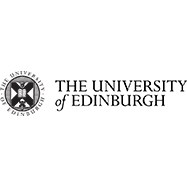UK universities excel in QS World Rankings
05 September 2011
Commenting on the QS World University Rankings 2011, Dr Wendy Piatt, Director General of The Russell Group, said:
“These figures provide another indication that UK universities punch well above their weight on the world stage, with Russell Group institutions taking four of the top seven spots including Cambridge at number one. We have better universities than any other country, apart from the US.
“UK universities may be held in very high esteem internationally, but global competitors in Asia, Europe and elsewhere are pumping billions into higher education and catching up fast.
“Our current 1.3% of GDP investment in higher education is already exceeded by the US, Germany, South Korea, Australia, Canada and Japan. Against the odds, with one per cent of the world's population, 12% of scientific citations go to UK-based research. The Government must continue to recognise the importance of world-class research-intensive universities to our future prosperity.
“That said, all league tables have their limitations and there is no single ‘correct’ way of measuring university performance and quality.
“Therefore, it is vital that students also look beyond any tables to pick the right course for them, and seek the university with the best teaching, research facilities and learning environment to support their studies. Now more than ever students want to be sure their degree will enhance their earning potential. So, they should also consider how strongly employers value their chosen degree. Getting the right mix of these ingredients - which Russell Group universities all provide - is as important as any league table ranking."
Notes to editors
- It is very difficult to capture fully in numerical terms the performance of universities and their contribution to knowledge, to the world economy and to society. A European University Association report (Global University Rankings and their Impact, 2011) and a European Commission report (Assessing Europe’s University-based research,2010) express serious doubts about the feasibility of comparing universities, and an earlier report by HEFCE* found that constraints on available data mean that league tables tend to simply ‘count what can be measured rather than measuring what counts’. Making meaningful comparisons of universities both within, and across, national borders is a tough and complex challenge, not least because of issues relating to the robustness and comparability of data. The fact that an individual institution can fare quite differently in the various league tables illustrates these problems very clearly.
* HEFCE, Counting what is measured or measuring what counts? 2008 - As an assessment of research the quality profiles generated by the UK’s Research Assessment Exercise is a more accurate indication of an institution’s research strength than any single ranking. Also, according to the National Student Survey Russell Group universities also have high levels of student satisfaction (average satisfaction rate across Russell Group universities is 87% compared with an average of 83% across the sector).
- Research conducted in 2003 showed that there was approximately a 10% wage premium realised by graduates from Russell Group universities compared with graduates from modern universities. (Chevalier, A. Does it pay to go to a prestigious university? Centre for the Economics of Education, LSE, March 2003). A second study found that graduates from institutions falling within the highest quartile of RAE scores could expect a wage premium of 10-16%. (McNally, S., etc al, University Quality and Graduate Wages in the UK, March 2009. HESA data shows that RG graduates secure on average a wage premium of £3,000 over graduates from other institutions 6 months after graduation (HESA, Destination of Leavers Survey, 2007/08, full-time first degree leavers entering full-time paid employment).
-
Hamir Patel
hamir.patel@russellgroup.ac.uk
020 3816 1316
-
Stephanie Smith
020 3816 1310
 X
X


